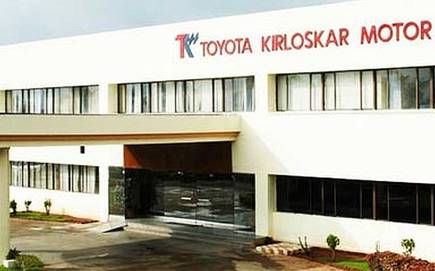Toyota Kirloskar Motor Pvt Ltd (TKM), which is a joint venture between Japanese auto major Toyota Corporation and the Kirloskar Group, is increasing local content in car manufacturing, and is planning to produce hybrid systems in India. It is currently the fourth largest car maufacturer in India after Maruti Suzuki, Hyundai and Mahindra.
Toyota Kirloskar Motor is looking to enhance localization of its products as well as technologies, as it aims to de-risk its business from foreign exchange fluctuations as well supply chain challenges, according to a senior company official.
“We are looking at localization not only because of ‘Made in India’ initiative. Backward integration also insulates from exchange rate fluctuations and makes supply chain shorter,” TKM Senior Vice President (Sales and Service) Naveen Soni told PTI in an interview.
“As part of the process, the company is constantly trying to increase local content in its products,” he added.
“It is an ongoing process. The engine for Innova Crysta is now manufactured locally. Almost 85 percent of the components used in the engine are manufactured locally. We have gradually increased localization in gear boxes and other critical components,” Soni said.
The auto major also plans to locally manufacture hybrid systems in the country. TKM currently imports such systems.
As part of Toyota’s global collaboration with Suzuki Motor Corp, the systems could also be supplied to Maruti Suzuki India.
The company, however, did not elaborate on the exact plans.
“There’s nothing we can share publicly at this moment, beyond what’s been publicly announced to date. As a matter of policy we do not discuss future product and investment plans,” Soni said.
He further said: “Having said that, we have always intended and aimed at creating competitive, reliable and scalable value-chain by building local capabilities be it for the traditional internal combustion engine, electrified powertrain or any other technology.”
Even Toyota’s alliance with Suzuki focuses to strengthen the competitiveness of both the companies by applying their strong points and learning from each other, he noted.
“However, a more comprehensive road map and conducive policy environment would help us to effectively plan the long-term product strategy,” Soni said.
A hybrid vehicle has more than one source of power. Usually, it combines a conventional combustion engine with an electric motor to run the vehicle.
In March 2018, Toyota Motor Corp and Suzuki Motor Corp (SMC) concluded a basic agreement for supplying hybrid and other vehicles to each other in the Indian market.
Soni said that hybrid technology can accrue various benefits to the automaker.
Soni noted that, even with increase in diesel fuel prices, as well as overall rise in prices of BS-VI diesel cars, demand for its models like Innova and Fortuner remained strong.
“Yes, smaller diesel cars tend to become unpopular because high cost of acquisition. However, for our models like Innova and Fortuner, customers still prefer diesel powertrains. This segment remains unaffected even after parity in petrol and diesel fuel prices in some regions,” he said.

